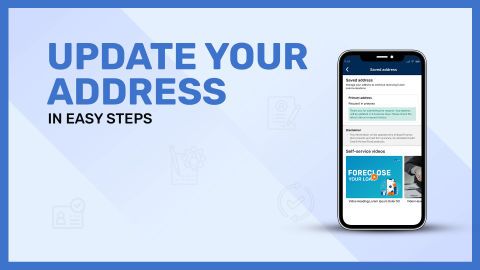In today’s digital world, businesses rely on automated payments to manage their finances efficiently. One such convenient method is the Electronic Clearing Service (ECS), which enables seamless loan repayments through automated bank deductions. However, when an ECS transaction fails, it results in an ECS return, which can have financial and legal implications. Business loan ECS return charges are penalties levied by lenders when a scheduled ECS payment fails due to various reasons. These charges can add up, impacting a company’s cash flow and creditworthiness. Understanding the causes of ECS returns is crucial for businesses to avoid unnecessary penalties and maintain smooth loan repayments. From insufficient funds and incorrect bank details to technical issues and compliance failures, several factors can trigger ECS returns. In this article, we’ll explore the key reasons behind ECS return failures in business loans and how to prevent them effectively.
What causes ECS returns in business loans?
Insufficient funds in the account
The most common reason for ECS return is a lack of sufficient balance in the account.
If the required EMI amount is not available, the transaction fails, leading to penalties.
Businesses must ensure adequate funds before the scheduled ECS debit date.
Incorrect bank account details
Providing incorrect bank account numbers or IFSC codes can lead to ECS transaction failure.
Always verify bank details while setting up ECS mandates to avoid such issues.
Any changes in the bank account should be updated with the lender promptly.
Technical errors and banking downtime
Server issues or banking system failures can cause ECS transactions to be declined.
Banks and financial institutions may face temporary downtime, delaying the payment process.
Reattempting the payment or using alternative methods can help in such cases.
Expired or revoked ECS mandate
ECS mandates have a validity period, and an expired mandate can cause transaction failure.
If a borrower revokes the mandate without informing the lender, ECS payments will be rejected.
Regularly check and renew mandates if required to avoid disruptions.
Limit restrictions on the bank account
Some accounts have transaction limits that may prevent high-value ECS debits.
Businesses should review their bank’s policies and request an increase in limits if needed.
Contacting the bank for clarification can help resolve such issues.
Mismatch in loan repayment details
Any mismatch between the borrower’s loan details and bank information can lead to ECS rejection.
Ensure that the ECS request matches the agreed EMI amount and tenure.
Cross-check loan account details with the lender to prevent discrepancies.
Bank account freezing or closure
If a bank account is frozen due to legal issues or compliance concerns, ECS transactions will fail.
Closed or dormant accounts are also ineligible for ECS payments.
Regularly monitor account status to avoid unexpected ECS returns.
Non-Compliance with RBI regulations
ECS payments must adhere to RBI guidelines and banking norms.
Any violations, such as exceeding transaction limits or failing to update KYC details, can cause ECS rejection.
Businesses should stay updated with banking policies to ensure compliance.
How business loan ECS return charges are calculated?
Fixed penalty by lender
Lenders impose a fixed penalty amount for each ECS return.
Charges vary based on financial institutions and loan agreements.
Percentage-based fee
Some lenders charge a percentage of the EMI amount.
Higher EMI amounts may result in higher ECS return charges.
Bank penalties
Banks may levy additional charges for unsuccessful ECS transactions.
These charges depend on the bank's internal policies.
GST and other taxes
ECS return charges may attract GST and other applicable taxes.
Businesses should check their loan agreement for details.
Impact on credit score
Frequent ECS returns negatively affect the borrower’s creditworthiness.
Additional charges may apply due to credit rating impact.
Common reasons for ECS returns
Insufficient account balance
Primary reason for ECS return due to lack of required EMI amount.
Leads to penalties and missed payment records.
Incorrect bank details
Errors in account number, IFSC code, or linked bank account cause failure.
Updating correct details prevents ECS rejections.
Technical issues or bank downtime
Banking system failures or server issues may interrupt transactions.
Retrying after resolving the issue can help.
Expired or revoked ECS mandate
Outdated mandates result in ECS rejection.
Regularly renew mandates to ensure uninterrupted payments.
Bank account restrictions
Daily transaction limits or frozen accounts may block ECS debits.
Businesses should review bank restrictions and resolve them.
How to avoid ECS return charges on your business loan?
Maintain sufficient balance
Keep track of EMI due dates and maintain required funds.
Set reminders or alerts to ensure timely payments.
Verify ECS mandate details
Cross-check bank account details and ECS authorization forms.
Update mandate if there are any account changes.
Enable auto-debit feature
Automate payments to avoid manual delays or missed EMIs.
Ensure proper authorization for auto-debit transactions.
Use alternative payment methods
If ECS fails, use net banking, UPI, or debit card to repay instantly.
Avoid delays that may lead to additional penalties.
Monitor loan repayment status
Regularly check loan account statements for discrepancies.
Contact lender if there are any ECS processing issues.
How to resolve ECS returns on your business loan?
Contact your bank for solutions
Request reason for ECS failure
Banks provide details regarding the cause of ECS return.
Understanding the issue helps take corrective action.
Ask for a reattempt or alternative yayment option
Some banks allow reattempts for failed ECS transactions.
Opt for manual payment via net banking, UPI, or card payment.
Inquire about charges and waivers
Request details on penalties or ask for possible waivers.
Some lenders provide relaxation for first-time ECS failures.
Update bank account information if required
If ECS fails due to incorrect details, update them immediately.
Notify both the bank and the lender about the changes.
Correcting insufficient funds or account details
Deposit required amount before ECS retry
Ensure your account has sufficient balance before the next ECS attempt.
Keep a buffer to avoid payment failures.
Update bank mandate or payment instructions
If account details have changed, update the ECS mandate.
Check with the lender to confirm successful updates.
Opt for alternative repayment methods
If ECS keeps failing, consider switching to other digital payment options.
Net banking, debit cards, and UPI are reliable alternatives.
Speak to lender about payment rescheduling
If financial constraints exist, discuss rescheduling options.
Some lenders offer EMI deferment or restructuring to avoid defaults.
Monitor future payments to prevent repeated failures
Regularly check account balance and payment status.
Set reminders and alerts for EMI due dates.
Legal implications of ECS return charges
Financial penalties and extra costs
ECS returns attract additional penalties from both the lender and the bank.
Repeated failures may lead to increased late payment fees.
Negative impact on credit score
Missed EMI payments due to ECS returns can lower a business’s credit rating.
Poor credit scores can affect future loan approvals and interest rates.
Legal notices and recovery actions
Persistent ECS failures may result in lenders sending legal notices.
In extreme cases, recovery agencies may get involved in debt collection.
Loan agreement violations
ECS returns may breach business loan agreements.
Lenders may impose stricter repayment terms or revise interest rates.
Risk of loan default and legal action
Continuous ECS failures can push the loan into default status.
Lenders may initiate legal proceedings or asset seizures in severe cases.
Restrictions on future loan approvals
Businesses with frequent ECS returns may face difficulties securing new loans.
Lenders assess repayment history before approving credit applications.
Impact on business reputation
Repeated ECS failures can affect relationships with financial institutions.
Businesses may struggle with securing future credit facilities.
Conclusion
Understanding the legal implications of ECS return charges is crucial for businesses to avoid financial and legal complications. By ensuring timely repayments, maintaining sufficient funds, and addressing issues proactively, businesses can minimize risks and maintain financial stability.




